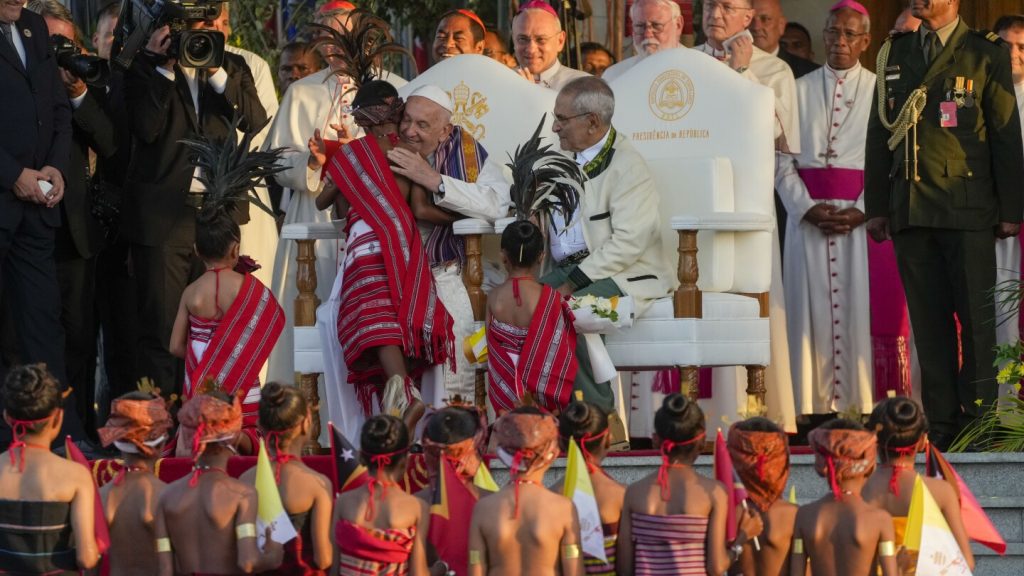Pope Francis was warmly welcomed in East Timor as he arrived to celebrate the country’s recovery from a traumatic struggle for independence. The overwhelmingly Catholic nation eagerly awaited his arrival, with crowds lining the streets waving Vatican and Timorese flags. The visit coincided with the 25th anniversary of the U.N.-backed referendum that led to East Timor’s independence from Indonesia. The Pope’s visit marked a stark contrast from the last visit by a pope, when St. John Paul II came to a country still occupied by Indonesia.
During his visit, Pope Francis praised the Timorese people for overcoming their difficult past and reconciling with Indonesia. He also highlighted the new challenges facing the country, including poverty, emigration, and issues related to alcohol abuse and violence. In a subtle nod to a recent abuse scandal involving Nobel Peace Prize-winning Bishop Carlos Ximenes Belo, the Pope emphasized the importance of preventing all forms of abuse and ensuring a peaceful childhood for young people. Despite the scandal, many in East Timor continue to support Belo, who was secretly sanctioned by the Vatican in 2020 for sexually abusing young boys.
The issue of abuse within the Catholic Church has been a sensitive topic in East Timor, with some questioning the Vatican’s handling of the situation involving Bishop Belo. Pope Francis’ vague reference to abuse during his visit was seen as a diplomatic move to acknowledge the issue while respecting the host country’s government and local church sentiments. The Vatican has faced criticism for allowing Bishop Belo to retire quietly in 2002, without facing any punishment for his misconduct. The Pope’s visit to East Timor was seen as an opportunity to address these complex issues surrounding abuse within the Church.
During his visit, Pope Francis celebrated East Timor’s strong Catholic heritage, with the majority of the population identifying as Catholic. He conducted a Mass on the same seaside esplanade where St. John Paul II had celebrated Mass in 1989. The Pope’s visit drew massive crowds, with hundreds of thousands of people expected to attend the Mass. Despite the challenges facing the country, including poverty and emigration, the visit of Pope Francis was seen as a moment of unity and hope for the Timorese people.
President Jose Ramos-Horta and Prime Minister Xanana Gusmao, two of East Timor’s revered independence heroes, met with Pope Francis during his visit. The Pope’s remarks highlighted the resilience and strength of the Timorese people in overcoming their past struggles. The visit also served as a reminder of the importance of reconciliation and peace-building efforts in the region. As the most Catholic country in the world outside of the Vatican, East Timor’s embrace of Pope Francis reflected a deep-rooted connection to the Catholic faith and its role in shaping the country’s history.
Overall, Pope Francis’ visit to East Timor was a significant moment for the country as it marked a celebration of the nation’s recovery from past traumas and a recommitment to peace and unity. The Pope’s message resonated with the Timorese people, who turned out in large numbers to welcome him and participate in the Mass. Despite the challenges and controversies surrounding the visit, Pope Francis’ presence in East Timor was a symbol of hope and solidarity, emphasizing the importance of faith and resilience in times of adversity.


